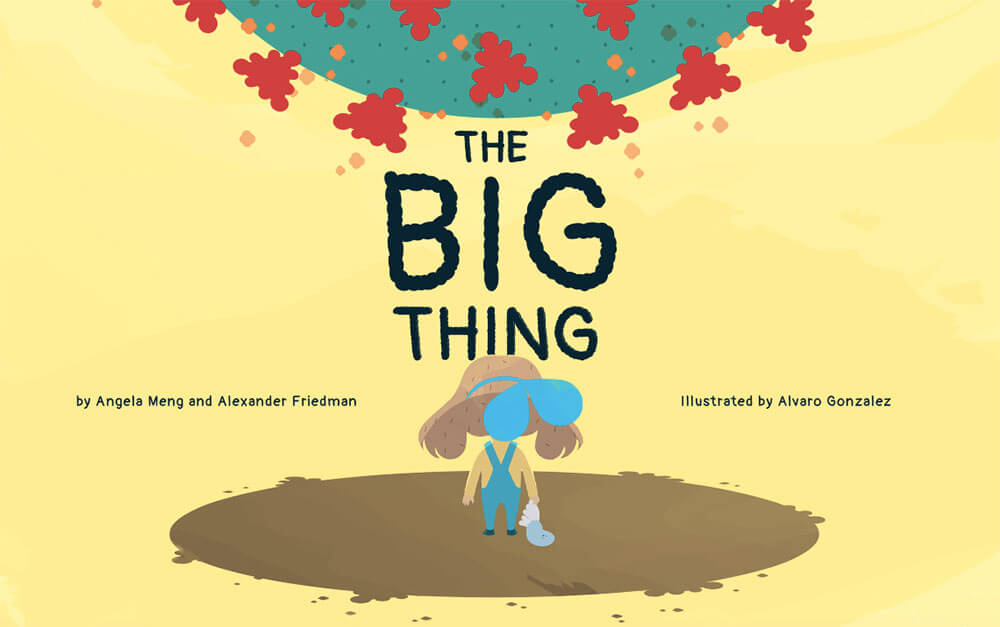
In “The Big Thing,” Bea’s teacher suggests the 5-year-old look at the silver lining in her situation — the COVID-19 pandemic is keeping her from doing so many activities. It’s advice everyone should embrace. (Courtesy Asymmetry LLC)

Michelle Russell
I get email pitches to feature all kinds of things and people in Convene that are unrelated to the business events industry — like a recent request to spotlight The Big Thing, a children’s book that explains the COVID-19 crisis in terms a five-year-old would understand. Curious, I didn’t reflexively hit delete. As an adult trying to make sense of our new world, I hoped downloading the book would give me a fresh perspective.
In Angela Meng and Alexander Friedman’s story, five-year-old Bea is understandably anxious and upset over all the things she can’t do because of the pandemic (“The Big Thing”), until her teacher suggests that she look for the silver linings in her situation — a new concept for the child and a good reminder for me as the weeks of sheltering in place dragged into months.
The silver lining for the business events industry has been that while the way we’ve loved to hold our events — in-person — has been pulled out from underneath us, we do have digital options to connect and share knowledge in our communities. And organizers have scaled a steep learning curve in an incredibly short time to arrive at some of the best ways to do that — drawing larger global audiences and offering a better platform for deep learning and more customized experiences than face-to-face events, as a result.
Of course, we know that nothing can replace being together in person. On a recent — what else? — Zoom webinar, one medical meeting planner shared that she and many of her colleagues, even those fortunate enough to still have their jobs, are feeling a sense of grief. There is something about being on site and seeing all of your hard work come to fruition, she said, that can’t be replicated by even the most successful online event.
Grief is just one of many difficult emotions we’ve experienced during this straight-out-of-a-science-fiction-novel time. We’ve had to find our own coping strategies — whether it’s a daily dose of TikTok or walks around the block. In our COVID-19 Recovery Dashboard surveys, around one-third of both planners and suppliers said that they think they need to cultivate soft skills, like resilience, to prepare for success during the recovery.
The soft skill I’m focusing on is listening. I’m reading You’re Not Listening: What You’re Missing and Why It Matters, an excellent book by bestselling author Kate Murphy. When you spend time interviewing others, listening is key. But I’m an impatient person and I don’t turn that skill “on” often enough with my friends, family, and colleagues.
At the same time, I’ve found one way not to listen to the anxious voices in my head. I’m teaching myself to crochet, which is both meditative and a lesson in patience. It’s okay if I spend time creating something that doesn’t turn out the way I’d hoped. I unravel the yarn and start over.
Michelle Russell is editor in chief of Convene.
